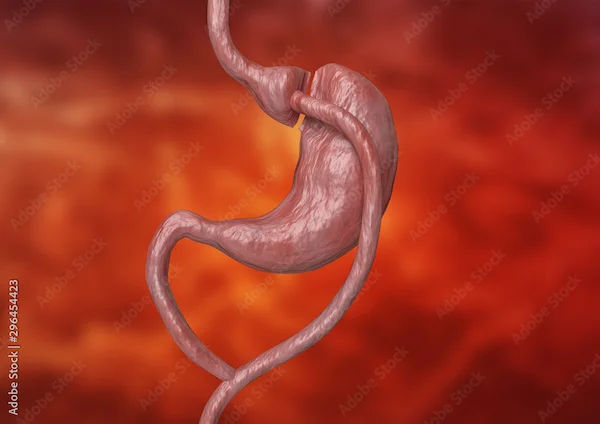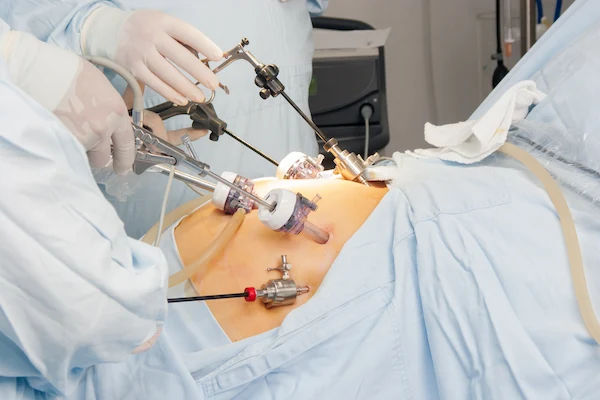Recovery Time For Gastric Bypass Revision Surgery
Learn about the recovery time for gastric bypass revision surgery, including healing phases, tips for smooth recovery, and when to return to work.

Written by Dr.Sonia Bhatt
Last updated on 3rd Jul, 2025

Introduction
If you’ve undergone gastric bypass surgery in the past and are now considering a revision, you may have questions about the recovery process. Gastric bypass revision surgery is performed to correct complications, improve weight loss results, or address other issues from the initial procedure. Recovery can vary depending on individual health, the type of revision, and how well you follow post-operative care instructions.
This article will guide you through what to expect during recovery, how to manage discomfort, and tips for a smooth healing process.
What Is Gastric Bypass Revision Surgery?
Gastric bypass revision surgery is a follow-up procedure to adjust or correct the original gastric bypass. Some common reasons for revision include:
Insufficient weight loss – If the initial surgery did not result in expected results.
Weight regain – If a patient regains significant weight after the first surgery.
Complications – Such as strictures (narrowing), ulcers, or nutritional deficiencies.
The type of revision—such as adjusting the stomach pouch, repairing leaks, or converting to a different bariatric procedure—may significantly influence recovery duration.
Consult Top Specialists for Personalised Health Advice
How Long Does Recovery Take?
Recovery from gastric bypass revision surgery generally follows a similar timeline to the original procedure but may take slightly longer due to scar tissue and previous surgical changes.
Hospital Stay (1-3 Days)
During the initial hospital stay, you will be closely monitored to ensure stability.
Most patients stay in the hospital for 1 to 3 days for monitoring.
You’ll start with clear liquids and gradually transition to a soft diet.
Pain management and mobility exercises will be encouraged to prevent blood clots.
First 2 Weeks (Initial Healing Phase)
The first two weeks are critical for rest and recovery.
Rest is crucial – Avoid heavy lifting or strenuous activity.
Follow a strict liquid/pureed diet to allow the stomach to heal.
Manage pain with prescribed medications.
Walk gently to improve circulation and prevent complications.
Weeks 3-6 (Gradual Improvement)
During this period, you may notice improved strength and appetite.
You may start introducing soft foods under your doctor’s guidance.
Light activities can be resumed, but avoid intense workouts.
Follow-up appointments will check healing progress.
6 Weeks & Beyond (Full Recovery)
By this stage, most individuals start resuming regular routines.
Most patients can return to normal activities by 6 weeks.
Exercise can be gradually increased under medical advice.
Long-term dietary adjustments will be necessary for sustained weight loss.
Factors Affecting Recovery Time
Several factors influence how quickly you recover:
Type of revision – Minor adjustments heal faster than major reconstructions.
Overall health – Patients with fewer medical conditions recover quicker.
Adherence to post-op guidelines – Following diet and activity restrictions helps healing.
Complications – Infections or leaks may prolong recovery.
Tips for a Smooth Recovery
Taking the right steps may support your healing and overall outcome.
1. Follow Your Doctor’s Diet Plan
Adjusting your diet in stages might help reduce complications.
Start with liquids, then pureed foods, and slowly introduce soft solids.
Avoid sugary, fatty, or carbonated foods that can irritate the stomach.
Stay hydrated but sip slowly to prevent discomfort.
2. Manage Pain & Discomfort
Managing pain effectively can contribute to a more comfortable recovery.
Take prescribed pain relievers as directed.
Use a heating pad (on low) for abdominal soreness.
Avoid NSAIDs (like ibuprofen) unless approved by your doctor, as they can cause ulcers.
3. Stay Active (But Don’t Overdo It)
Gentle movement may help reduce surgical risks and boost digestion.
Short, frequent walks help prevent blood clots and improve digestion.
Avoid heavy lifting (more than 10-15 lbs) for at least 6 weeks.
4. Watch for Warning Signs
Contact your doctor immediately if you experience:
Severe pain that doesn’t improve with medication.
Fever or chills (signs of infection).
Persistent nausea/vomiting.
Difficulty swallowing or signs of a leak (rapid heart rate, abdominal swelling).
5. Emotional & Mental Well-being
Recovery might affect your mood. Prioritising mental health could be just as important as physical healing.
Recovery can be emotionally challenging. Support groups or counselling can help.
Celebrate small milestones in your healing journey.
When Can You Return to Work?
The timeline for going back to work often depends on the nature of your job and your healing progress.
Desk jobs: You might return in 2–3 weeks if you feel well.
Physically demanding jobs: 4-6 weeks or longer may be needed depending on your recovery.
Long-Term Success After Revision Surgery
To maintain results:
Follow nutritional guidelines, including high-protein intake and possible supplements.
Exercise regularly when approved by your doctor.
Attend follow-ups to monitor progress and address concerns.
Avoid smoking and alcohol, which can hinder healing.
Final Thoughts
Recovery after gastric bypass revision surgery may take time and varies from person to person. Following your doctor’s advice, staying active within limits, and prioritising nutrition and mental well-being might support a smoother healing process.
If you’re considering gastric bypass revision surgery or have concerns about recovery, Apollo 24|7 can connect you with experienced bariatric surgeons. Book a consultation today for personalised advice and support.
Consult Top Gastroenterologists
Consult Top Specialists for Personalised Health Advice

Dr. Santhosh Kumar
Gastroenterology/gi Medicine Specialist
7 Years • MBBS, MD (General Medicine), DNB ( Gastroenterology)
Bengaluru
VISTA SPECIALITY CLINIC, Bengaluru

Dr. Vijay Kumar Rai
Gastroenterology/gi Medicine Specialist
18 Years • MBBS , MD (General medicine) , DM (Gastroenterology)
Kolkata
LivGastro, Kolkata

Dr Harish K C
Gastroenterology/gi Medicine Specialist
15 Years • MBBS MD DM MRCP(UK) (SCE-Gastroenterology and Hepatology)
Bangalore
Manipal Hospital, Bangalore
Dr. Amitava Dutta
Gastroenterology/gi Medicine Specialist
30 Years • MBBS , MD (General Medicine), DM (Gastroenterology)
Kolkata
Dr Hazra's Clinic, Kolkata

Dr. Paramesh K N
Gastroenterology/gi Medicine Specialist
16 Years • MBBS, MS ( General Surgery), DNB ( Surgical Gastroenterology)
Hyderabad
Sprint Diagnostics Centre, Hyderabad
Consult Top Gastroenterologists

Dr. Santhosh Kumar
Gastroenterology/gi Medicine Specialist
7 Years • MBBS, MD (General Medicine), DNB ( Gastroenterology)
Bengaluru
VISTA SPECIALITY CLINIC, Bengaluru

Dr. Vijay Kumar Rai
Gastroenterology/gi Medicine Specialist
18 Years • MBBS , MD (General medicine) , DM (Gastroenterology)
Kolkata
LivGastro, Kolkata

Dr Harish K C
Gastroenterology/gi Medicine Specialist
15 Years • MBBS MD DM MRCP(UK) (SCE-Gastroenterology and Hepatology)
Bangalore
Manipal Hospital, Bangalore
Dr. Amitava Dutta
Gastroenterology/gi Medicine Specialist
30 Years • MBBS , MD (General Medicine), DM (Gastroenterology)
Kolkata
Dr Hazra's Clinic, Kolkata

Dr. Paramesh K N
Gastroenterology/gi Medicine Specialist
16 Years • MBBS, MS ( General Surgery), DNB ( Surgical Gastroenterology)
Hyderabad
Sprint Diagnostics Centre, Hyderabad



